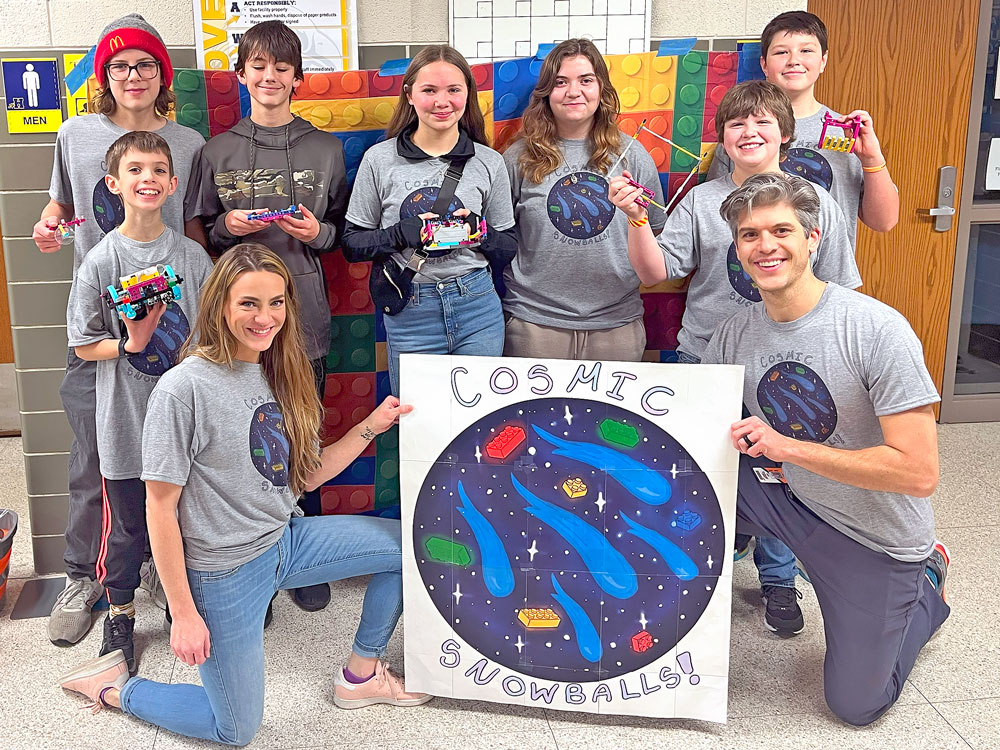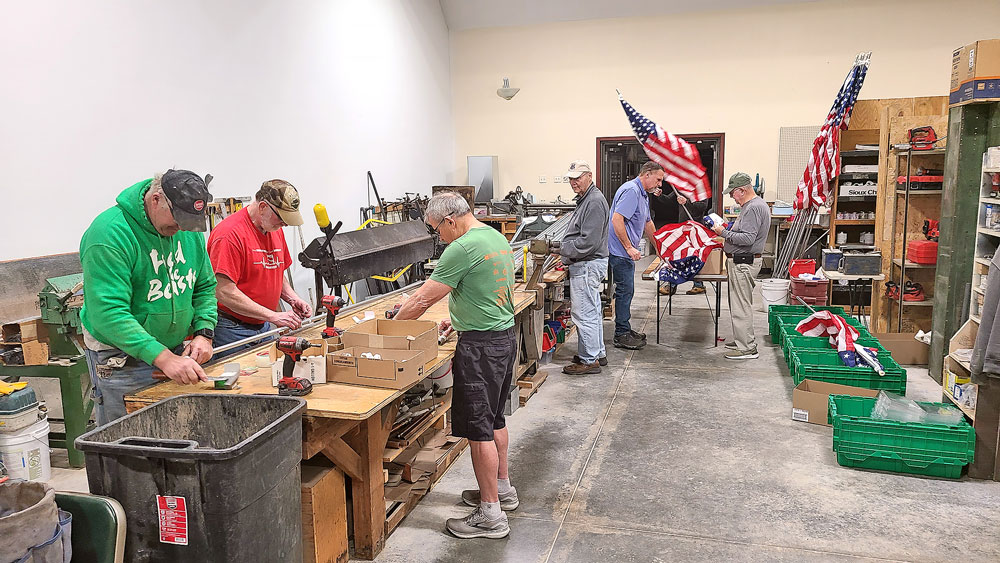Ministers asked to spread the word on hospice benefits
By Bob Steenson, bsteenson@charlescitypress.com
Compassionate. Loving. Caring. Helpful. Learning. Comforting. Hope. Peace.
Charles City-area ministers were invited to a luncheon Tuesday by representatives of Hospice of North Iowa.
After the meal at First Congregational Church, Connie Bleile, director of hospice and palliative medicine at Mercy Health Center-North Iowa, asked the ministers to introduce themselves and give a one-word description of what they think of hospice.
That resulted in those words listed above, and several more.
Bleile said the purpose of the gathering was to provide the ministers with information about hospice, because they are often closely involved in people’s final days and because they can help tell families about the services that are available through hospice.
“You can make a difference just by your conversations,” she said.
Bleile said studies have shown that people say they want three things when they reach the end of their lives: they don’t want to suffer or have their family see them in pain, they want their dignity, and they want family and loved-ones around.
Hospice of North Iowa offers a variety of services both in the home and in an inpatient care unit in Mason City, she said, and services are customized to meet the needs of the patient and his or her family.
Many people who have a loved-one go through hospice say they wish they had gotten hospice involved earlier, she said.
“Getting to them earlier provides us a better chance to meet their needs.”
Hospice staff and volunteers can help families talk through the questions they have when the end of life is near, and talk about their goals for end-of-life care, Bleile said.
They can discuss pain medication options and decide where they want to be, she said. Sometimes a balance is initially found between pain management and lucidity so the patient can communicate with family, but as things progress stronger pain medications can be used.
“We do have very good access to physicians and we have medications in place so if something should happen, if things change, you can access those medications to help your comfort level,” she said.
Another thing hospice does “very, very well” is follow-through after a death, through bereavement services and keeping tabs on survivors, Bleile said.
Sometimes if an elderly parent is dying, the adult children — who may no longer live in the area — may be worried about what will happen to the surviving parent.
“We can tell them we’re going to keep tabs on him, we’re going to call, we’re going to phone, and that’s very, very comforting,” Bleile said.
Autumn Hawver-Colglazier, the bereavement coordinator with Hospice of North Iowa, said they can provide support and keep tabs on survivors for up to 13 months after a death, offering grief counseling, support groups, a newsletter, Tree of Life programs, and even a grief camp, Camp Greentree, for children ages 7 to 14, at the Camp Tanglefoot Girl Scout camp at Clear Lake.
The Charles City Tree of Life tree-lighting service will be held at 6 p.m. Monday, Dec. 3, at St. John’s Lutheran Church, to remember and honor people who have died.
“I tell people there’s no right or wrong with grieving, as long as you take care of yourself and you don’t hurt anybody else,” Hawver-Colglazier said. “We’ll get through it. You don’t get over it, but you get through it.”
Bleile said Hospice of North Iowa has 125 trained volunteers in a 10-county area including Floyd County, and new volunteers are welcome.
Anyone can refer someone to hospice and the person’s doctor will help determine if it is an appropriate time to begin hospice care.
Hospice costs are usually covered by private insurance, Medicare or Medicaid, or private payments can be made on a sliding scale. Services are never denied because of inability to pay, according to information provided at the luncheon.








Social Share